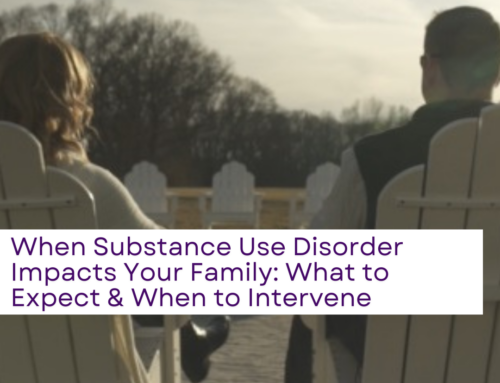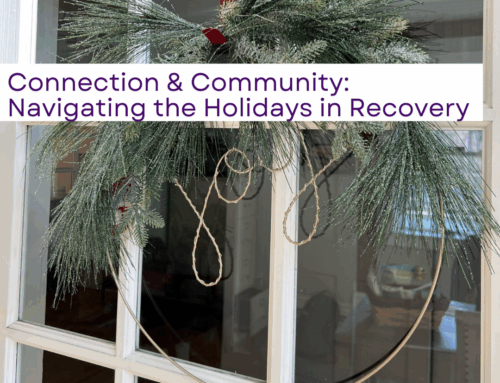Deciding to stop drinking can be daunting, as for most people getting sober involves a lifestyle change of some kind. From who you spend time with to how you fill your days, many people feel intimidated by the prospect of life without alcohol. You may be asking yourself what you will do for fun, or if being sober will change your personality in significant ways. Perhaps you’re concerned about spending time with friends who still drink, or how you will fill the hours you used to spend drinking.
It’s true that your life will look different than it did while you were drinking, and that protecting your newfound sobriety in the early days is critical, so you will need to make changes to keep yourself on track. The amazing news is, however, that there are multiple benefits to living alcohol-free, and you will be pleasantly surprised at the new horizons that open up to you. Living sober is new and can feel awkward, but it is also incredibly rewarding. Whatever benefits you thought you gained from drinking alcohol will be put to shame as you discover that nothing compares to the benefits gained from sobriety.
What Happens to Your Body When You Stop Drinking
Alcohol is pervasive in modern culture, so people tend to forget that it’s very bad for your body. In fact, alcohol impacts all of your major organs. When someone drinks habitually, their body is required to work overtime to process the alcohol, and the liver goes into overdrive to metabolize it. Your brain function and memory are reduced, and your cardiovascular and digestive systems become inflamed. Habitual or excessive alcohol consumption can lead to many serious diseases and health problems.
Conversely, however, when you stop drinking you see immediate health and wellness benefits. Here are some of the amazing things that happen to your body when you stop drinking:
 Improved Sleep: One of the very first things people notice when they stop drinking is their sleep improves. According to the National Sleep Foundation, alcohol triggers “alpha activity” in the brain, which usually only occurs when you are awake. When alpha activity is triggered during sleep, you are unable to enter into a deep sleep cycle. Healthy sleep helps every major body function as well, so your overall health and energy levels improve significantly after you quit drinking. Some people experience sleep disturbances in very early sobriety, which is caused by withdrawal symptoms as your body adjusts, but this will pass (as long as more alcohol isn’t consumed) relatively quickly. Reducing caffeine intake, eating healthy, and moderate exercise can help improve sleep trouble early on in sobriety.
Improved Sleep: One of the very first things people notice when they stop drinking is their sleep improves. According to the National Sleep Foundation, alcohol triggers “alpha activity” in the brain, which usually only occurs when you are awake. When alpha activity is triggered during sleep, you are unable to enter into a deep sleep cycle. Healthy sleep helps every major body function as well, so your overall health and energy levels improve significantly after you quit drinking. Some people experience sleep disturbances in very early sobriety, which is caused by withdrawal symptoms as your body adjusts, but this will pass (as long as more alcohol isn’t consumed) relatively quickly. Reducing caffeine intake, eating healthy, and moderate exercise can help improve sleep trouble early on in sobriety.
Clearer Skin: Alcohol is a diuretic, which means it dehydrates your skin and causes it to lose elasticity. Drinking also causes body tissue inflammation, which is why some people get flush in the face when they drink. This redness goes away once alcohol leaves your system (but over time this inflammation can cause permanent skin damage). Without alcohol, skin gradually rebuilds collagen levels and rehydrates, making you look (and feel) younger! Additionally, research suggests that drinking actually ages the body’s cells. It reduces the lifespan of the cells in the heart, liver, and skin and causes deterioration, which improves significantly with the absence of alcohol.
 Weight Loss: Alcohol is high in calories that provide no nutritional value. The body processes and stores alcohol as sugar that eventually converts to fat, which causes weight gain. One of the best benefits of quitting drinking is that your desire for carbohydrates diminishes. It’s common, after all, for people to reach out for high-carb foods when drinking or to ‘cure’ a hangover. This craving is caused by a fast reduction of carbs in the system which causes blood sugar to drop, triggering the brain to crave more carbohydrates. Without the excess caloric intake from alcohol and the carbohydrate cravings that accompany this, most people lose weight in the early days of sobriety.
Weight Loss: Alcohol is high in calories that provide no nutritional value. The body processes and stores alcohol as sugar that eventually converts to fat, which causes weight gain. One of the best benefits of quitting drinking is that your desire for carbohydrates diminishes. It’s common, after all, for people to reach out for high-carb foods when drinking or to ‘cure’ a hangover. This craving is caused by a fast reduction of carbs in the system which causes blood sugar to drop, triggering the brain to crave more carbohydrates. Without the excess caloric intake from alcohol and the carbohydrate cravings that accompany this, most people lose weight in the early days of sobriety.
Healthier Heart: Habitual drinking increases the risk of heart disease, as it puts stress on the entire cardiovascular and pulmonary (lung) system. Drinking increases the amount of fat in your bloodstream (specifically, it raises the number of triglycerides) which can result in higher cholesterol levels and lead to heart disease. Studies have shown that the risk of heart failure is nearly twice as high in habitual drinkers. When you stop drinking your cardiovascular system gradually improves, leading to a healthier heart, longer life, and more energy!
 Healthier Liver: It is well known that alcohol is bad for your liver, but do you know why? It’s because the human body isn’t built to process alcohol. Large amounts of alcohol, even just a few times, causes your liver to work extra hard to process it all. Over time, this causes the liver to deteriorate, significantly increasing your chance of liver diseases like hepatitis, cirrhosis, or fatty liver syndrome. Fortunately, the liver is a regenerative organ, which means that it can repair itself when it’s given the time to do so, as long as alcohol is no longer entering your system. Unfortunately, some liver damage is irreparable. In most cases, though, people who quit drinking will feel the benefits within a few months.
Healthier Liver: It is well known that alcohol is bad for your liver, but do you know why? It’s because the human body isn’t built to process alcohol. Large amounts of alcohol, even just a few times, causes your liver to work extra hard to process it all. Over time, this causes the liver to deteriorate, significantly increasing your chance of liver diseases like hepatitis, cirrhosis, or fatty liver syndrome. Fortunately, the liver is a regenerative organ, which means that it can repair itself when it’s given the time to do so, as long as alcohol is no longer entering your system. Unfortunately, some liver damage is irreparable. In most cases, though, people who quit drinking will feel the benefits within a few months.
How Herren Wellness Can Help
Despite the fact that alcohol is a legal substance that is widely available in today’s culture, it is a dangerous substance that can cause devastating damage to the mind, body, and spirit. There are many factors involved in how dangerous alcohol is for you individually, including body chemistry, genetics, environment, personality, and mental health considerations. Even without genetic risk factors, over time you can become emotionally and/or physically dependent on alcohol, and it can be very difficult (even life-threatening) to stop drinking without professional oversight. This is true of any mind-altering substance, including marijuana.
At Herren Wellness, we work with our guests to examine every aspect of how substance use impacts their lives, and walk with them through their journey to wellness and living without mind-altering substances. Sobriety is so much more than ceasing drugs and/or alcohol, so we work with guests to examine all aspects of their lives, including emotional, social, financial, spiritual, and mental elements that help them achieve meaningful and sustainable recovery.





